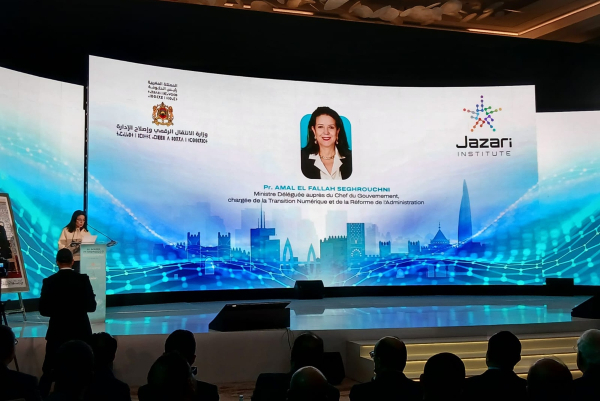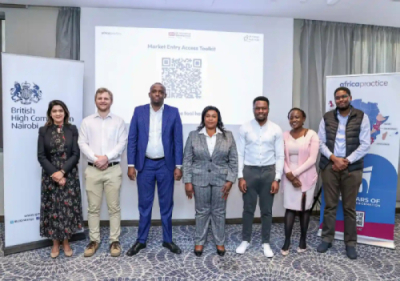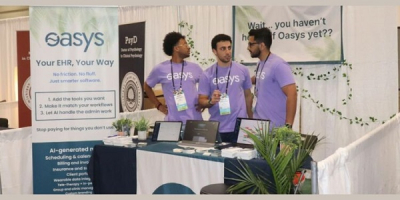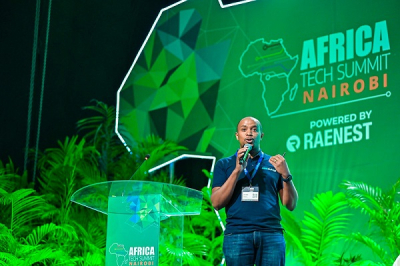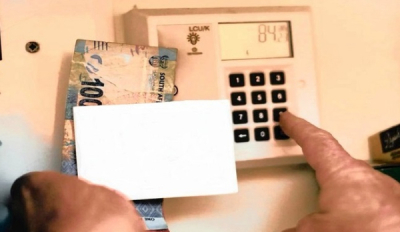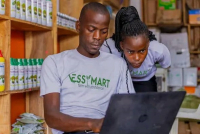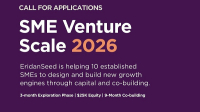- Stub offers SMEs an integrated platform to manage invoicing, finances, and administrative tasks without complex spreadsheets.
- The platform automates invoicing, bank synchronization, expense categorization, and financial reporting.
- Founder Tayla Dandridge brings fintech and design experience from Absa Group and Finastra.
Tayla Dandridge is a South African entrepreneur based in London, England. She co-founded and leads Stub as chief executive officer. The online platform helps entrepreneurs manage finances and administrative tasks simply, without relying on complex spreadsheets.
Founded in 2023, Stub allows users to create quotes, invoices, credit notes, and customer statements within a few clicks. The platform enables users to convert quotes into invoices, or reverse the process, depending on sales progress. Users can also schedule recurring invoices, bill in multiple currencies, and embed payment links to allow customers to pay online.
Stub extends beyond invoicing. The platform centralizes all documents for each client, including quotes, invoices, credit notes, and statements. This structure simplifies monitoring and follow-ups. At the same time, entrepreneurs access an overview of sales, expenses, profit, and cash flow through ready-to-use reports designed for daily management, tax compliance, and funding applications.
Stub also connects to bank accounts to automatically retrieve transactions. The system then categorizes transactions, leaving users to validate them. Several user testimonials highlight bank synchronization and automatic categorization as features that transform previously unclear finances into clear and actionable data, while saving significant time.
In addition, the platform integrates inventory tracking features to identify out-of-stock items and high-turnover products. Stub also includes asset management tools, with automatic depreciation calculations. The platform relies on a complete accounting framework that generates all required financial statements, while remaining accessible to non-specialists who seek a clear view of their business activity.
Dandridge graduated from Stellenbosch University, where she earned a bachelor’s degree in marketing in 2015. She also holds a postgraduate diploma in marketing and advertising, which she obtained in 2016 from the Red & Yellow Creative School of Business.
After completing a marketing internship at Vitality UK in 2016, Dandridge joined Absa Group in South Africa. She successively held roles as a design intern, service designer, and design project lead. Between 2021 and 2022, she worked as a senior consultant at Finastra, a financial solutions company.
This article was initially published in French by Melchior Koba
Adapted in English by Ange Jason Quenum
- Morocco plans to generate 100 billion dirhams ($11 billion) in additional GDP from artificial intelligence by 2030.
- The government expects AI adoption to create 50,000 jobs and train 200,000 graduates in AI-related skills.
- Morocco will launch the Jazari Root AI network, including a 50-MW sovereign data center, to anchor its national ecosystem.
Morocco has placed artificial intelligence at the center of its economic transformation strategy. By 2030, the kingdom aims to generate 100 billion dirhams in additional GDP, equivalent to about $11 billion, through structured AI deployment. Official projections also link this strategy to the creation of 50,000 jobs and the training of 200,000 graduates in AI-related skills.
Amal El Fallah Seghrouchni, Minister Delegate for Digital Transition and Administrative Reform, unveiled these targets on Monday, January 12, in Rabat during a digital-focused conference. She stated that Morocco’s current GDP stands at around $170 billion and described artificial intelligence as a major growth lever, provided authorities integrate it within a structured, sovereign, and impact-driven framework.
These announcements form part of Morocco’s forthcoming national artificial intelligence strategy, whose roadmap authorities plan to release shortly. The strategy rests on several pillars, including skills development, the build-out of sovereign digital infrastructure, and the expansion of cloud and data-processing services capable of supporting advanced AI use cases nationwide.
To operationalize this ambition and structure the national ecosystem, Morocco also announced the launch of the Jazari Root network, which will serve as a central hub for the country’s artificial intelligence ecosystem. The project will include a 20-hectare campus and a 50-MW sovereign data center. Jazari Root aims to bring together researchers, startups, large companies, and public institutions around applied projects ranging from e-government and smart cities to agriculture, healthcare, and logistics.
By structuring investments and its ecosystem at an early stage, Morocco seeks to position itself as a credible artificial intelligence player at regional and African levels. The kingdom aims to capture part of the value that AI could generate in the global economy, which PwC estimates at nearly $15.7 trillion by 2030.
This article was initially published in French by Samira Njoya
Adapted in English by Ange Jason Quenum
The UK-Kenya Tech Hub and Viktoria Ventures have launched Startup 360 Connect to boost early-stage investment in Kenya. In partnership with Anza Village and POV, the "Angel Leads" program will provide hands-on training in deal sourcing, syndication, and due diligence. The goal is to cultivate a new generation of local investors capable of providing sustainable support to innovative startups. Applications are open through Friday, January 30.
Egyptian startup Oasys Health has raised $4.6 million to enhance its AI-powered mental healthcare platform. The company plans to use the funds to automate clinical tasks, integrate data from wearable devices, and offer personalized patient monitoring. This investment will also support its expansion across partner clinics and universities.
The 2026 Africa Tech Summit Nairobi will feature 12 promising startups: Bekia, Bosso Africa Inc, Chefaa, Hizo, Innobid, Niteon, Pretium, Timart, TIBU Health, Vepay, Winich Farms, and Zerobionic. Spanning sectors from healthcare and finance to sustainability and robotics, these ventures represent the next generation of African innovation, offering high potential for both investment and impact.
- Adjemin connects Abidjan-based merchants to online buyers through a local e-commerce platform.
- The startup added logistics, food delivery, and mobile money payments to expand its ecosystem.
- AdjeminPay integrates major mobile money services such as Orange Money.
Nathanael Yao is an Ivorian IT specialist and entrepreneur. He co-founded and leads Adjemin, an e-commerce startup focused on buying and selling products across multiple categories.
Founded in 2019, Adjemin developed an online platform under the same name. The platform allows merchants based in Abidjan and its municipalities to offer a wide range of everyday products directly through the website. The company focuses on connecting local sellers with buyers seeking competitive prices.
For merchants, the platform provides a digital storefront that enables product and price visibility to a broader audience without requiring large physical retail spaces. For consumers, the platform offers simple navigation, diverse product categories, price comparison in CFA francs, and identification of products available nearby in Abidjan.
To strengthen its commercial ecosystem, Adjemin developed several complementary services. The startup launched Smart Livraison, a delivery management system designed for e-commerce operators. It also introduced Chez Nous, a service that delivers meals to users at workplaces and university campuses.
Adjemin also developed AdjeminPay, a payment solution designed to meet merchant needs in the African market. The service targets businesses and online platforms that seek to collect payments for goods and services through websites or mobile applications. AdjeminPay supports digital payments through leading mobile money services, including Orange Money, and integrates directly into merchants’ platforms.
On the academic side, Nathanael Yao graduated from ITA Ingénierie SA. He earned a professional bachelor’s degree in computer science in 2016, followed by a first-year master’s degree in 2017. He also holds expertise in search engine marketing.
This article was initially published in French by Melchior Koba
Adapted in English by Ange Jason Quenum
- WattWallet enables instant purchases of prepaid electricity tokens through a digital platform
- The startup reports more than 500,000 users across several African markets since its 2025 launch
- About 7 million South Africans rely on prepaid electricity, with limited access to regulated advance options
Prepaid electricity remains the dominant model for household energy access in several African countries. To meet this daily need, WattWallet positions itself as a digital platform dedicated to the instant purchase of electricity tokens.
WattWallet operates as a digital solution developed by a South African startup. The platform allows consumers to buy prepaid electricity tokens in a few clicks. Keagan and Zhaida Juries launched the service in 2025, and the startup has already reached more than 500,000 users across the West African sub-region, according to the company.
“Our mission is to ensure that households are never left without electricity because of the timing of their income and to reward responsible spending,” Keagan Juries said.
To access the service, users enter their meter number and the desired amount, after which the system instantly generates a valid token to recharge household meters. This process eliminates long queues and administrative hurdles commonly associated with traditional purchasing channels. The service operates 24 hours a day, seven days a week, works across all device types, and integrates automatic meter number validation alongside multiple payment options.
The startup also relies on a physical agent network of more than 10,000 operators, which allows users to convert cash into digital credit. The platform partners with major regional electricity utilities, including operators in Mali, Ivory Coast, Senegal, Ghana, Niger, and Benin, to ensure token reliability and validity.
Beyond instant purchases, WattWallet provides detailed transaction history tracking and a rewards program that encourages frequent users to optimize their spending. In addition to prepaid electricity credits, the startup also offers a “Buy Now, Pay Later” service.
Keagan Juries said “about 7 million South Africans depend on prepaid electricity and often run out before payday. There is currently no structured and regulated electricity advance solution on the market.” He added: “Existing alternatives remain informal, such as borrowing money, using high-interest cash advances, turning to loan sharks, or going without electricity. No financial services provider or utility currently offers large-scale, flat-rate electricity advances in compliance with regulations, which creates a clear gap.”
This article was initially published in French by Adoni Conrad Quenum
Adapted in English by Ange Jason Quenum
- Essymart provides digital access to inputs, training, and markets for smallholder farmers
- The startup reached about 4,000 farmers in 2024, up roughly 20% year on year
- The platform operates via web, SMS, voice calls, and USSD to reach non-smartphone users
Essymart operates as an agritech solution developed by a Ugandan startup. The company aims to transform the livelihoods of smallholder farmers by providing digital solutions that improve yields, incomes, and access to markets.
The startup operates from Mayuge, about 120 kilometers from the capital Kampala. Elvis Kadhama, Viola Nakadama, and Stella Doreen Namulondo launched the company in 2022.
At the core of Essymart’s offering sits a digital platform accessible through a web application, SMS, voice calls, and USSD codes. The system allows farmers, including those without smartphones, to purchase agricultural inputs such as seeds, fertilizers, and pesticides. The platform also delivers personalized agronomic advice and provides access to training and market services.
The startup directly targets several constraints that limit agricultural productivity in Africa, including poor access to reliable inputs, low adoption of modern farming practices, and weak access to profitable markets. Through its integrated approach, Essymart helps farmers raise yields while reducing direct input costs.
“In 2024, we supported about 4,000 farmers, representing an increase of around 20% compared with the previous year, and we were close to our 2030 target of supporting 20,000 families,” Elvis Kadhama said. He added: “The user base combines direct customers receiving full services and farmers reached through partnerships with public and private actors, which reflects both demand for our integrated inputs, training, and market linkages, and the expansion of our distribution network.”
By relying on simple technologies such as USSD and SMS, the company ensures service access even in remote areas where internet connectivity remains limited. Essymart positions itself as both a digital marketplace for agricultural inputs and a service ecosystem that links farmers with certified suppliers, agronomic experts, and commercial outlets.
To date, the company has reached several thousand smallholder farmers in eastern Uganda and plans to expand into other African markets.
This article was initially published in French by Adoni Conrad Quenum
Adapted in English by Ange Jason Quenum
- FastClaim digitizes roadside assistance, claims tracking, and vehicle inspections through a mobile app.
- The startup launched operations in Zambia last week after expanding beyond Nigeria.
- The platform uses remote photo and video inspections to reduce processing times and fraud.
Okugo Uche Ayodele is a Nigerian entrepreneur and a seasoned insurance professional. He serves as founder and chief executive officer of FastClaim, a technology startup specializing in motor insurance management.
Founded in 2022, FastClaim operates as a mobile application that allows users to request roadside assistance, manage administrative documents, and track insurance claims directly from their phones. The application removes long waiting times and unnecessary travel. The solution serves both policyholders and insurance companies and aims to shorten processing timelines while limiting abusive claims.
FastClaim centralizes multiple automotive and insurance-related services within a single platform. In a few steps, users can request towing services from any location to receive rapid assistance during breakdowns. The application also simplifies vehicle ownership transfers by reducing paperwork and administrative bottlenecks.
The platform also enables users to renew driving licenses online without visiting physical offices. In addition, the system accelerates vehicle compliance by enabling rapid renewal of mandatory documents.
A core feature of FastClaim relies on remote vehicle inspection. Using a smartphone, users capture photos or videos that the application analyzes to identify damage. This process eliminates on-site inspection delays and accelerates the transition from claim submission to processing. The system also reduces exaggerated or fraudulent claims by verifying damage through visual evidence submitted via the application.
Last week, the startup announced the launch of its operations in Zambia. Industry bodies previously named the platform the most promising insurance application in 2023 and the best Nigerian insurance application in 2025.
Alongside his entrepreneurial activities, Okugo Uche Ayodele serves as a board member of Teens TV Africa in Nigeria. He holds a master’s degree in marketing obtained in 2003 from the University of Calabar. He began his professional career in 1998 at International Merchant Bank, where he worked as credit and marketing manager.
In 2000, he became marketing manager at Sovereign Trust Insurance. In 2004, he assumed the role of branch manager at Consolidated Hallmark Insurance in Port Harcourt before joining Cornerstone Insurance in 2005 as marketing manager. Between 2006 and 2020, he worked at International Energy Insurance, where he successively held regional director and managing director roles. Between 2023 and 2024, he also served as advisory director at JAVAT 365, a US-based content-sharing technology company.
This article was initially published in French by Melchior Koba
Adapted in English by Ange Jason Quenum
The EridanSeed SME Venture Scale 2026 program is open to high-growth Nigerian small and medium-sized businesses looking to scale. It offers $25,000 in funding, mentorship and networking, and aims to help founders build new sources of revenue. Open to all sectors, the program combines capital with operational support. Applications close on Jan. 31, 2026.
More...
Mamy Eyewear, a Kenyan AI-driven vision testing startup, has received backing from Japan’s Ikemori Venture Support. The investment will help the company expand in East Africa and improve access to optical services.
NALA, a pan-African startup, has partnered with UK payment infrastructure provider Noah to launch a cross-border settlement network linking Africa and Asia. Through its Rafiki platform, NALA allows businesses to receive payments in stablecoins and convert them into local currency immediately, cutting fees and delays in emerging-market payments.
- Guinea quadrupled backbone capacity to 200 Gbps and deployed nearly 12,000 km of fiber
- Digital reforms generated more than $26.9 million in budget savings in public administration
- Telecoms now account for 4.4% of GDP and attracted about $220 million in investment
In 2025, Guinea intensified initiatives under its digital transformation strategy. Authorities accelerated infrastructure deployment, strengthened state digitalization, and modernized telecom sector governance. The Minister of Posts, Telecommunications and Digital Economy, Rose Pola Pricemou, presented these developments during a sector review.
On infrastructure, Guinea quadrupled national backbone capacity to 200 Gbps from 50 Gbps. Authorities deployed nearly 12,000 kilometers of fiber optic cable to connect all administrative regions. The country also commissioned its first Tier 3–certified national data center, operationalized an Internet Exchange Point, and secured sovereign management of the .gn country-code domain, which strengthened network security and resilience.
Public administration digitalization also gained momentum. In 2025, authorities deployed 39 public service applications and fully digitized several key procedures, including passport issuance, through a unified digital portal. The TELEMO platform fully digitized public procurement, improving transparency and traceability. At the same time, the FUGAS unified civil service registry streamlined workforce management and generated budget savings exceeding 233 billion Guinean francs, or about $26.9 million.
Education and digital inclusion programs expanded in parallel. Authorities trained more than 10,000 people in digital skills. The Univ Connect project interconnected several universities and reached more than 80,000 students, lecturers, and researchers. In primary education, the GIGA program connected 585 schools to the internet, with authorities targeting 2,200 schools by 2026, or nearly 900,000 beneficiaries. Authorities also expanded regional digital hubs, with 20 additional centers under construction. The government invested more than $4 million to support tech entrepreneurship and stimulate local innovation.
These reforms delivered economic and strategic returns. The telecommunications sector now accounts for 4.4% of Guinea’s gross domestic product and attracted about $220 million in investment. At the same time, mobile internet costs fell by about 25%.
In 2026, authorities will prioritize extending connectivity to underserved areas, with more than 600 identified white zones. The government will also expand digital use in education and public services and strengthen cybersecurity and local data hosting. However, challenges remain, including universal access, infrastructure maintenance, and continuous skills training to support sustainable nationwide adoption.
This article was initially published in French by Samira Njoya
Adapted in English by Ange Jason Quenum
The AgriTech4Tunisia Innovation Challenge 2026 is accepting submissions from startups, researchers and entrepreneurs seeking to address Tunisia’s agricultural challenges, including water scarcity and climate risks. Backed by the Accelerate for Impact platform, the program offers a bootcamp, technical support and access to investors. Applications are open until Feb. 12, 2026.



